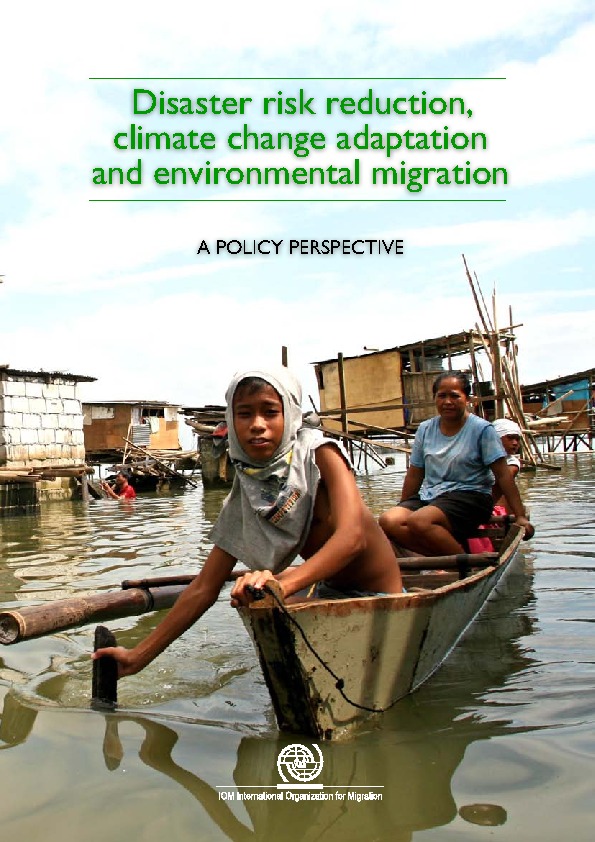In the kaleidoscopic weave of life, the intricate patterns of existence reflect the interplay between humanity and the environment. Climate change and disaster risk reduction stand as pivotal threads in this tapestry, intricately entwined with the teachings of the Bahá’í Faith. Addressing these contemporary challenges involves not only an understanding of scientific principles but also a profound moral imperative to foster resilience and compassion. Thus, this discourse explores the Bahá’í perspective on preparing for change through the lens of climate science and proactive disaster management.
The Bahá’í teachings emphasize the interconnectedness of all creation, likening it to a vast ocean where each drop contributes to the whole. Humanity, as stewards of the Earth, bears a uniquely sacred duty to safeguard the environment. At the very core of the Bahá’í doctrine lies the principle of unity in diversity, which calls for collective action to confront the climate crisis. The omnipresent nature of climate change serves as a clarion call; it beckons us to coalesce—irrespective of race, nationality, or creed—in our shared aspiration for a sustainable future.
To embark upon the path of understanding climate change, one must first grasp its fundamental mechanisms. The phenomenon manifests as a result of excessive greenhouse gas emissions, largely due to human activity. This incessant accumulation of carbon dioxide and other pollutants engenders a deleterious effect on global temperatures, causing climatic disruptions and widespread disasters. In this context, the Bahá’í teachings advocate for an appreciation of science as a powerful ally. Knowledge and reason, viewed as divine gifts, empower individuals to engage critically with the dynamics of climate change, cultivating an informed citizenry capable of effecting transformative change.
Furthermore, the Bahá’í perspective on social justice channels a deeper examination of the link between climate change and disaster risk. Marginalized communities, often the most vulnerable to ecological degradation, find themselves ensnared within a paradox of injustice. The equitable distribution of resources and opportunities emerges as a salient principle, urging humanity to mitigate the impacts of climate change on those least equipped to cope with its dire consequences. This aligns with the Bahá’í ideal of fostering a global society built on compassion, where alleviating the suffering of others is paramount.
Disaster risk reduction, a cornerstone of adapting to climate change, calls for a preemptive stance—a strategic fortification of communities against the vicissitudes of nature. Drawing from the teachings of the Bahá’í Faith, the virtue of preparedness can be likened to a tree that flexes with the wind instead of resisting it. This adaptive resilience is cultivated through education, community engagement, and collaboration with local authorities. Training and equipping individuals to anticipate emergencies fosters a culture of safety and preparedness, enabling societies to withstand the tempests of change.
Education plays a pivotal role in this transformative process. The Bahá’í writings exhume the intellectual capacity within each individual, advocating for the nurturing of curiosity and critical thinking. Climate change education serves as a catalyst, igniting awareness and inspiring action. By integrating environmental studies within educational curricula, the Bahá’í community promotes a holistic understanding of ecological stewardship. This educational framework not only transcends mere knowledge acquisition but also imbues individuals with a sense of duty to act responsibly toward the planet. The metaphor of guardianship emerges; each person becomes a custodian of the Earth, entrusted with its care and preservation.
Furthermore, the teachings of the Bahá’í Faith encourage the establishment of vibrant community networks that embrace inclusivity. A synergistic approach to problem-solving, where diverse voices converge, can result in innovative strategies for disaster risk reduction. The ideal of unity under a shared purpose propels communities to engage in participatory processes, fostering trust and solidarity. Such collaborative endeavors can manifest in community gardens, local emergency response teams, or initiatives aimed at increasing environmental awareness. These organic manifestations of unity not only fortify the social fabric but simultaneously cultivate environmental resilience.
Inherently woven into Bahá’í teachings is the recognition of the cyclical nature of change. Resilience lies not merely in resistance to adversity but in adaptation and continuous learning. The evolution of society mirrors the natural world, highlighting the necessity for dynamism in our approaches to climate change. Just as a river carves its path over time, communities must be fluid in their strategies, learning from each deluge and forging ahead with renewed vigor.
As we endeavor to confront the challenges posed by climate change and disaster risk, it is essential to embrace hope as a guiding principle. The Bahá’í Faith offers a profound conviction in the possibility of transformation, despite the seemingly insurmountable obstacles. This innate optimism inspires individuals to act with purpose, reinforcing the belief in collective capability. Like saplings breaking through the earth, humanity can rise resiliently, creating a verdant landscape dotted with initiatives that echo the teachings of unity and compassion.
In conclusion, the path to preparing for change through the teachings of the Bahá’í Faith delineates a synergistic confluence of knowledge, action, and communal responsibility. As stewards of the Earth, individuals are called to embrace their roles with sincerity, endeavoring to reduce risk and enhance adaptation to the emerging realities of climate change. In its essence, the Bahá’í teachings advocate for a transformative journey—a pilgrimage toward a harmonious existence where humanity flourishes vested in the understanding that our destinies are inextricably linked.
